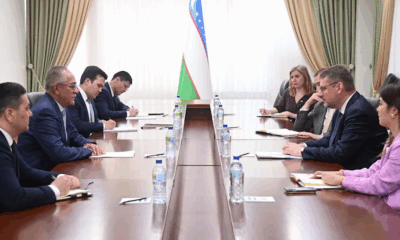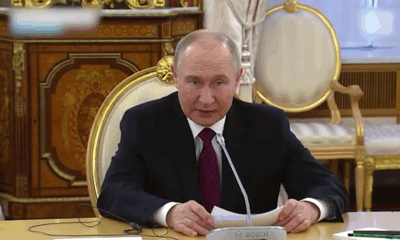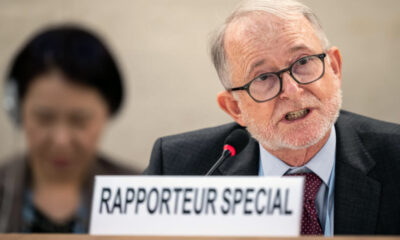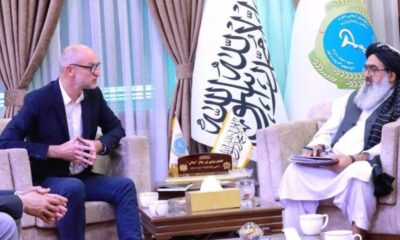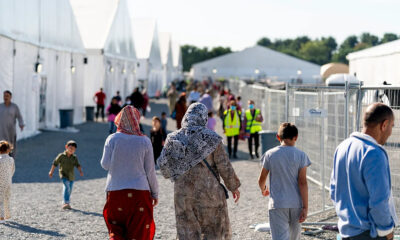Health
Polio vaccination campaign kicks off in Afghanistan

The ministry of public health of the Islamic Emirate of Afghanistan (IEA), in cooperation with relevant international agencies launched the last round of the polio vaccination campaign for this year.
The ministry said in a statement that the campaign will be launched in 242 high risk districts of 26 provinces of Afghanistan targeting nearly seven million children under the age of five.
According to the ministry in the east region, the campaign will be rolled out one week later in that region as it comes close on the heels of the previous campaign.
In 2022, nine rounds of polio vaccination campaigns including six national and three regional were carried out this year.
“Each campaign has brought Afghanistan closer to interrupting the transmission of the virus,” read the statement.
Afghanistan is now closer to polio eradication than ever before.
“This year, to date, two polio cases, one in Paktika and one in Kunar, have been reported. This is a significant reduction compared to 56 polio cases in 2020 and four cases in 2021,” read the statement.
Dr. Qalandar Ebad, the Minister of Public called on the nation to respect health workers who are working to save the lives of children.
“The people, especially parents, should respect the efforts of the vaccination teams that save the life of their children, (and save them) from deadly and permanently paralyzing polio disease by administering two drops of the vaccine,” Ebad said.
The Minister also called on people to cooperate with vaccination teams so children get vaccinated.
“Parents should present children under the age of five to the vaccinators to be vaccinated so that they are protected from the disease,” the Minister added.
Polio is a viral disease that has no cure and can only be prevented by vaccination. The disease is mostly prevalent in children and can cause permanent paralysis or even death.
Afghanistan and Pakistan are the only two countries where polio is endemic.
The Ministry of Public Health of Afghanistan calls on all local officials, community elders, influencers, scholars, and parents to cooperate with vaccination teams in their communities for the successful implementation of this campaign so that no child will be paralyzed by the virus and this disease can be eradicated from Afghanistan forever.
Health
Head of MSF in Afghanistan meets with Jalali over improving healthcare services
Michael Lippi committed to making efforts aimed at improving the quality of healthcare services and fostering better coordination.
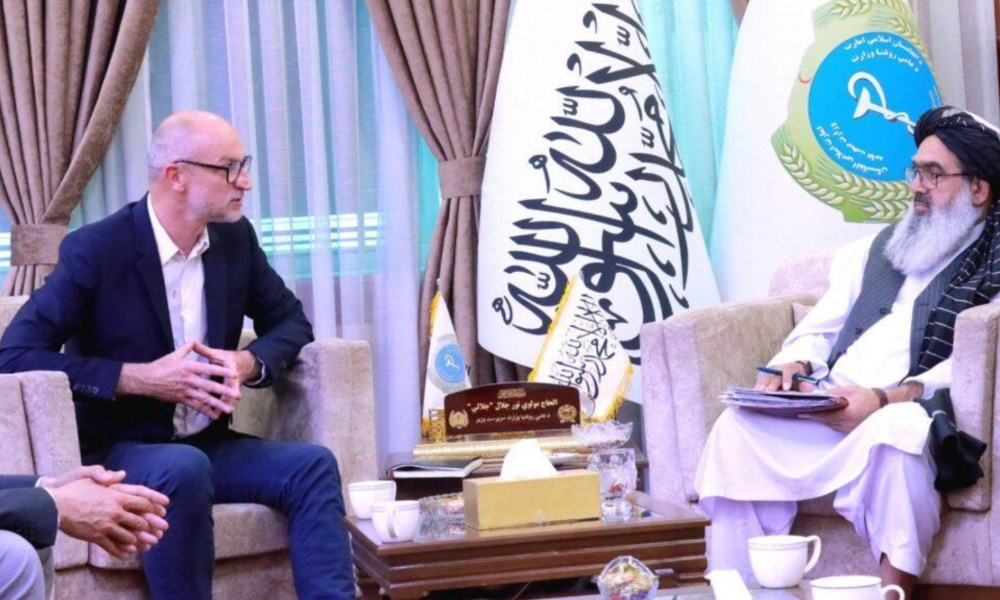
Afghanistan’s Acting Minister of Health Noorjilal Jalali met with the head of Medecins Sans Frontieres (MSF) for Afghanistan, Michael Lippi, for discussions on improving healthcare centers and medical services in the country.
The two officials also discussed enhancing the capacity of healthcare workers, ensuring transparency in services, improving coordination with the Ministry of Public Health, and delivering effective and sustainable healthcare services.
Jalali emphasized the importance of increasing and expanding the organization’s support for the health sector and called for further development of services.
He stressed the need to enhance the capacity, quality, effectiveness, and transparency of healthcare workers.
Michael Lippi also emphasized the need for further improvements in health services in Afghanistan and the expansion of this sector.
He committed to efforts aimed at improving the quality of healthcare services and fostering better coordination. He specifically addressed the continuation of services in the provinces of Herat, Kunduz, and Helmand, confirming that these centers will continue their operations in collaboration with the Ministry of Public Health.
Meanwhile, Mohammad Naeem, the Deputy Minister for Finance and Administration at the Ministry of Foreign Affairs of the Interim Government, held a separate meeting with
Michael Lippi to discuss the expansion of healthcare services and the provision of necessary facilities for returning migrants.
According to the Ministry of Foreign Affairs, Lippi reassured government that MSF’s efforts to improve maternal and child health and enhance the capacity of healthcare personnel will continue.
Health
Japanese charity Peshawar-Kai to resume leprosy treatment in Afghanistan
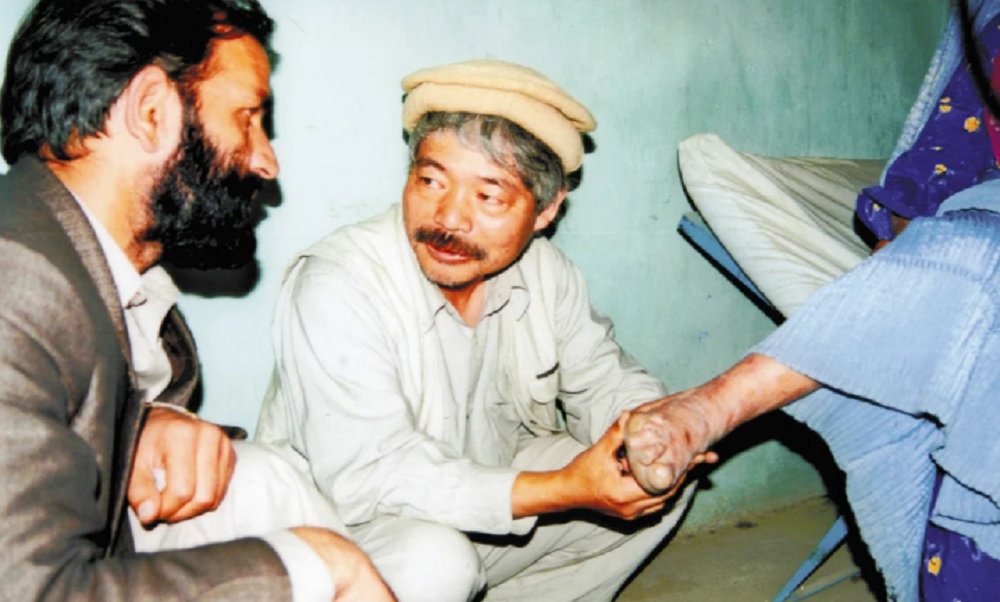
Peshawar-Kai, a Japanese aid organization, has announced that it will resume leprosy treatment in Afghanistan after around 15 years.
The charity will treat leprosy patients in memory of its former head Tetsu Nakamura, Japan’s Yomiuri Shimbun newspaper reported.
The NGO will begin its leprosy treatment program in Afghanistan this year.
It will treat patients in areas such as Nangarhar province by providing medicines, training staff and sending mobile treatment teams.
Leprosy, also known as Hansen disease, is a chronic infectious disease caused mainly by a type of bacteria called Mycobacterium leprae. The disease affects the skin, the peripheral nerves, the mucosa of the upper respiratory tract and the eyes.
Nakamura started treated leprosy patients in Pakistan in the 1980s and then began extensive activities, including the construction of water supply canals in Afghanistan.
The Japanese aid worker was killed in an armed attack in Jalalabad in December 2019.
Health
WHO confirms second Polio case in Afghanistan
The Islamic Emirate of Afghanistan’s Public Health Ministry has not yet commented.
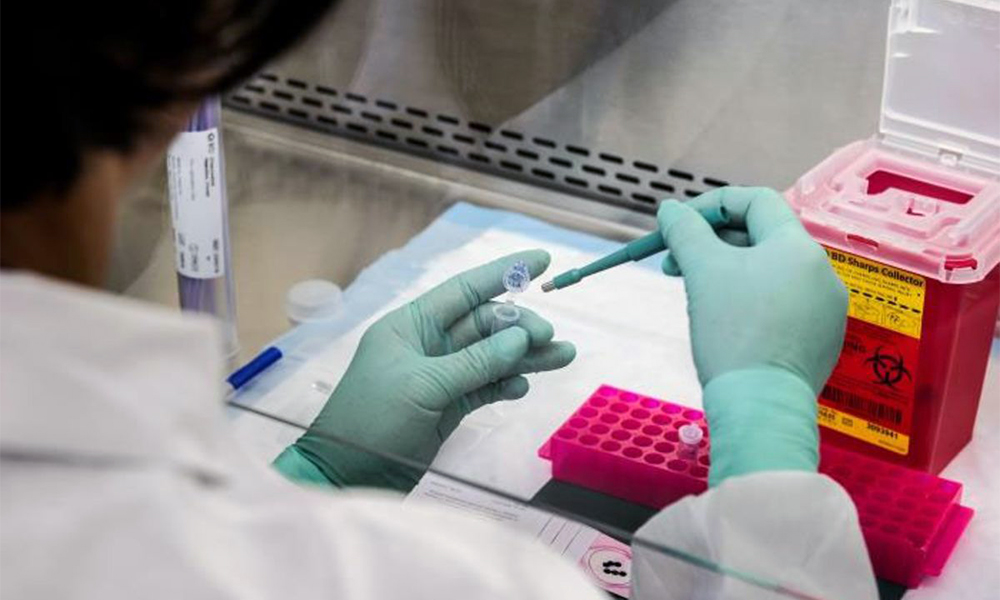
The World Health Organization (WHO) has confirmed the second case of polio in Afghanistan for the year 2025.
The case was identified in March in Helmand province.
This follows the first reported case in the Bala Murghab district of Badghis province, where a five-year-old girl was diagnosed with the virus.
Additionally, 18 environmental samples testing positive for the polio virus have been reported in provinces including Kandahar, Helmand, Kabul, Laghman, Nangarhar, and Zabul.
Afghanistan and Pakistan remain the only countries where polio has not been eradicated.
Polio is a viral disease for which there is no cure, and vaccination is the only way to protect children from it.
The Islamic Emirate of Afghanistan’s Public Health Ministry has not yet commented.
-

 Sport5 days ago
Sport5 days agoIPL 2025: Dharamsala match abandoned due to security concerns
-

 Regional5 days ago
Regional5 days agoIndia says military stations attacked by Pakistan drones and missiles
-
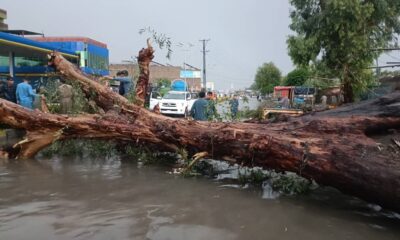
 Latest News4 days ago
Latest News4 days agoOne dead, dozens injured as powerful storm strikes Jalalabad, Afghanistan
-

 Latest News4 days ago
Latest News4 days agoEx-Afghan deputy speaker Qadeer back in Kenyan court for criminal case
-
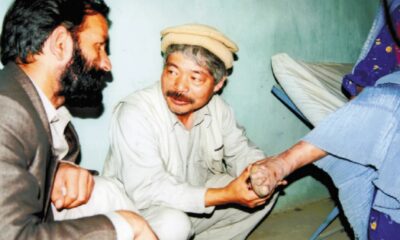
 Health4 days ago
Health4 days agoJapanese charity Peshawar-Kai to resume leprosy treatment in Afghanistan
-

 Latest News3 days ago
Latest News3 days agoPakistan says India launched attack on Afghanistan, India denies
-

 Sport4 days ago
Sport4 days agoIndia suspends Indian Premier League T20 cricket tournament
-

 Latest News4 days ago
Latest News4 days agoMCC Chief: Afghan cadres sent to China for AI training


